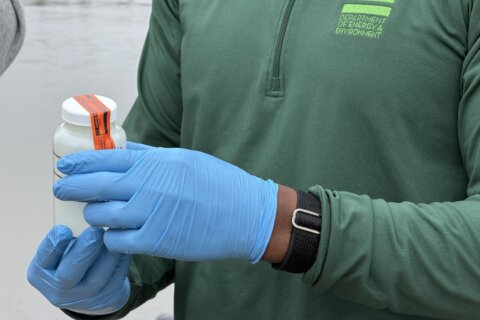Organizations representing individuals with disabilities and two women with mobility disabilities have filed a lawsuit in federal court over its street redesign projects, including the construction of new bike lanes in the District.
The complaint states that newly constructed bicycle lanes create barriers to safe, accessible on-street parking, curb ramps and pedestrian crossings for people with mobility disabilities, including those who use wheelchairs and walkers.
It also alleges that the District does not have enough accessible on-street parking generally to comply with the Americans with Disabilities Act and that the District Department of Transportation did not work with individuals with disabilities in the creation of their new road designs.
The Department of Transportation said it does not comment on ongoing litigation.
“We aim to remedy this systemic discrimination by the District against residents as well as visitors with mobility disabilities who are prohibited from moving about this beautiful city with the same freedom and ease as those without disabilities,” says Richard A. Simms, executive director of the District of Columbia Center for Independent Living, Inc., one of the plaintiffs in the case.
One of the streets mentioned in the lawsuit is 17th Street NW. The lawsuit claims that the DDOT constructed protected bike lanes that puts individuals with disabilities at risk of being hit by cyclists with the lanes obstructing pickup and drop-off areas.
In addition, the placement of tire stops and posts prevent wheelchair users and other people who need curb ramps from accessing them, according to the lawsuit.
“Unfortunately, the District has chosen to build bike lanes in a way that blocks safe
curb access for the disabled and the elderly, rendering them unable to fully participate in all aspects of our community — shopping, dining, visiting doctors, going to church or synagogue,” said Ed Hanlon of the Dupont East Civic Action Association, an organizational plaintiff in the case.
“Bike lanes may not be appropriate on every street, but we can construct accessible street designs that include bike lanes in a way that protects the rights of the disabled and the elderly to safely reach the curb. This does not have to be a choice between accessibility and bike lanes,” Hanlon said.








